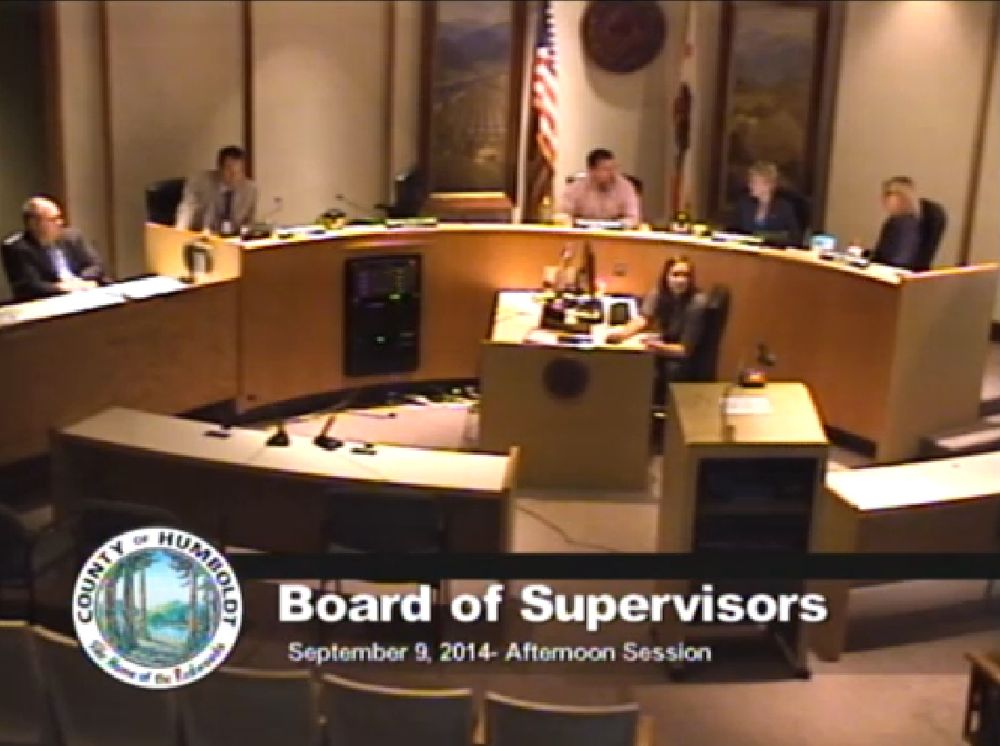
First District Supervisor Rex Bohn took matters in his own hands at today’s Board of Supervisors meeting, bringing forth an agenda item aimed at limiting big-money donations in county elections.
Last time the board addressed the prickly issue of campaign finance reform, back in July, it tasked a two-supe subcommittee — Fourth District Supervisor Virginia Bass and Fifth District Supervisor Ryan Sundberg — with drafting an outline for a potential ordinance. But Bohn evidently grew tired of waiting.
In the afternoon session, Bohn proposed setting a campaign donation limit for individuals of $3,000 per four-year election cycle, a cap that he said was designed to prevent some Daddy Warbucks from coming in at the last minute and buying the election for his chosen candidate, especially those out-of-town Warbuckses. (I’m paraphrasing here.)
Bohn and Sundberg especially lamented the lack of public feedback on the issue. While almost everyone on the street will say they care about the influence of money on local elections, few people have submitted comments to the board on the matter, either during meetings or through the Open Humboldt online forum.
Bohn suggested moving forward by using Sonoma County’s ordinance on campaign contribution limits as a model, with that $3,000 limit plugged in. But Third District Supervisor Mark Lovelace suggested that the limit should be significantly less — $500 per election cycle for individual donations and a $2,500 cap for donations from committees and organizations. He also suggested asking candidates to adhere to a voluntary spending limit of $100,000 per election, arguing out that there are enough local media outlets to spread each candidate’s message.
Second District Supervisor Estelle Fennell didn’t care for that suggestion. “With all due respect,” she said, a $500 limit is “easy for a city candidate to say.” She was referring to the fact that Lovelace’s district is small and mostly urban, making it relatively easy for candidates to reach their constituents, while her own district is geographically vast. She also quibbled with his point about local media, saying, “you can’t always be guaranteed that what’s in the media reflects your stand.”
Fennell then made a motion to stick with the original plan, namely letting the Bass-Sundberg subcommittee hammer out a potential draft ordinance. Lovelace seconded the motion, but the subsequent discussion meandered. Sundberg said he’d just as soon bypass the subcommittee process. “I’m ready to go forward and get something on the books,” he said.
Lovelace continued to push for voluntary spending limits but got no support from his fellow supervisors. Bohn suggested that such a cap would effectively limit people’s opportunities to speak in an election while Bass said it could be a Trojan horse. Unlike large last-minute campaign donations, she pointed out, last-minute spending doesn’t have to be reported in the final days before an election.
Ultimately Fennell withdrew her motion. Lovelace took the opportunity to make a motion of his own, suggesting that the county base its ordinance not on Sonoma County’s but rather Kern County’s, which has a $500 contribution limit per election. Unfortunately for Lovelace, no one seconded his motion.
Next it was Sundberg’s turn. After some confusion about time spans — does an election cycle go from one June primary to the next? what about runoff elections? one cap for both? or separate? — Sundberg put forth a motion to develop an ordinance that includes a $1,500 individual donation cap for the four-year primary cycle with an additional $1,500 allowed per donor should there be a runoff.
Lovelace made one last attempt to get his colleagues on board for a voluntary spending cap and a lower donation limit — suggesting a $1,000 cap but again got no backup. Staff clarified that the Sonoma ordinance would still serve as a model, and the supes proceeded to approve Sundberg’s motion with a 4-1 vote, Lovelace dissenting.
Staff was directed to bring back the draft ordinance within a month, so if you’re one of those Humboldt people with an opinion on this issue, consider this crunch time.
CLICK TO MANAGE